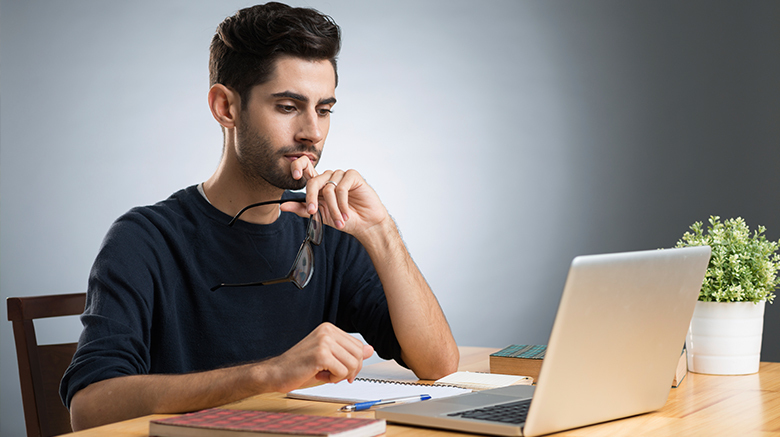Most students know full well what they should and shouldn’t do when studying, but too often they choose to not use the most effective studying practices. Along with the following study tips, I am sharing the reasoning behind each one, in order to hopefully provide additional incentive for students to implement them. These tips can make studying easier and more effective.
Tip 1: Give yourself an appropriate amount of time to study for each final.

One of the reasons last-minute studying is less beneficial is because students tend to simply review information that is already stored in long-term memory. When under a time crunch, students avoid the areas that take the most time — content they don’t know — even though this information is the very thing they need the learn.
Why is this important? When students leave themselves plenty of time to study, they spend that time focusing more on the content they don’t understand and quickly move on when encountering already learned material. This leads to a net gain in knowledge and better test preparation.
Tip 2: Break up your planned study time into shorter intervals.

You might plan on studying a total of four hours for your psychology final. As you’ve surely heard before, instead of cramming four hours of studying in the night before the exam, break up that time into shorter intervals across several days. One hour each day over a period of four days is more helpful for learning than four hours in one sitting.
Why is this important? Studies show that the brain becomes less alert after 90 minutes of continuous focus. Your classes are even designed to match this rhythm, with most classes lasting 90 minutes, and three-hour classes having designated break times halfway through. Your studying sessions should reflect the same rhythm in order to maximize the amount of learning taking place.
Tip 3: Schedule your study times.

Review your daily schedule leading up to your finals. Select the what, when, where and how long you plan on studying. Set an alarm in your phone to let you know when it’s time to study.
Why is this important? If you don’t have your studying planned out in advance, you may end up thinking about it throughout the day every day before you get to it, which tends to create chronic feelings of stress and anxiety. If you have your study times scheduled, you can free yourself of having to think or worry about studying. Do your best to stick to the schedule you set, and you’ll be able to enjoy your non-study times more fully. This will also help you feel more alert when you crack open the books.
Tip 4: Minimize distractions.

Most notably, put your phone away. Your phone is probably your biggest distractor. And don’t think that turning it off but keeping it next to you is sufficient. It needs to be out of sight. So, depending on where you are studying, find a place where you can safely put it away so that you can’t see it. Put it in your bag or leave it in another room. Likewise, if you’re working on your computer, leave the social media and email tabs closed.
Why is this so important? The mere presence of your phone can make it more difficult to focus on the task at hand, resulting in less learning during that study session. Once you finish your study session, go ahead and post that selfie and reward yourself with watching a video of a hamster eating a tiny burrito.
Tip 5: Study (read) out loud and take your time.

Reading out loud helps to create multiple memory codes for the information, making it easier to retrieve when taking exams. Reading out loud also takes more time than reading silently to yourself, and this tends to be helpful with comprehension.
Why is this important? This type of studying creates a distinctive memory, increasing your chances of recalling this information during a test.
Remember to relax!
Chill out. Be aware of your stress level and how it is impacting your body and mind. Make sure to take plenty of breaks — spend a few minutes breathing deeply, relaxing tense muscles, moving around a little and even taking short naps. It’s hard to feel stressed when your body and mind are calm and relaxed.


